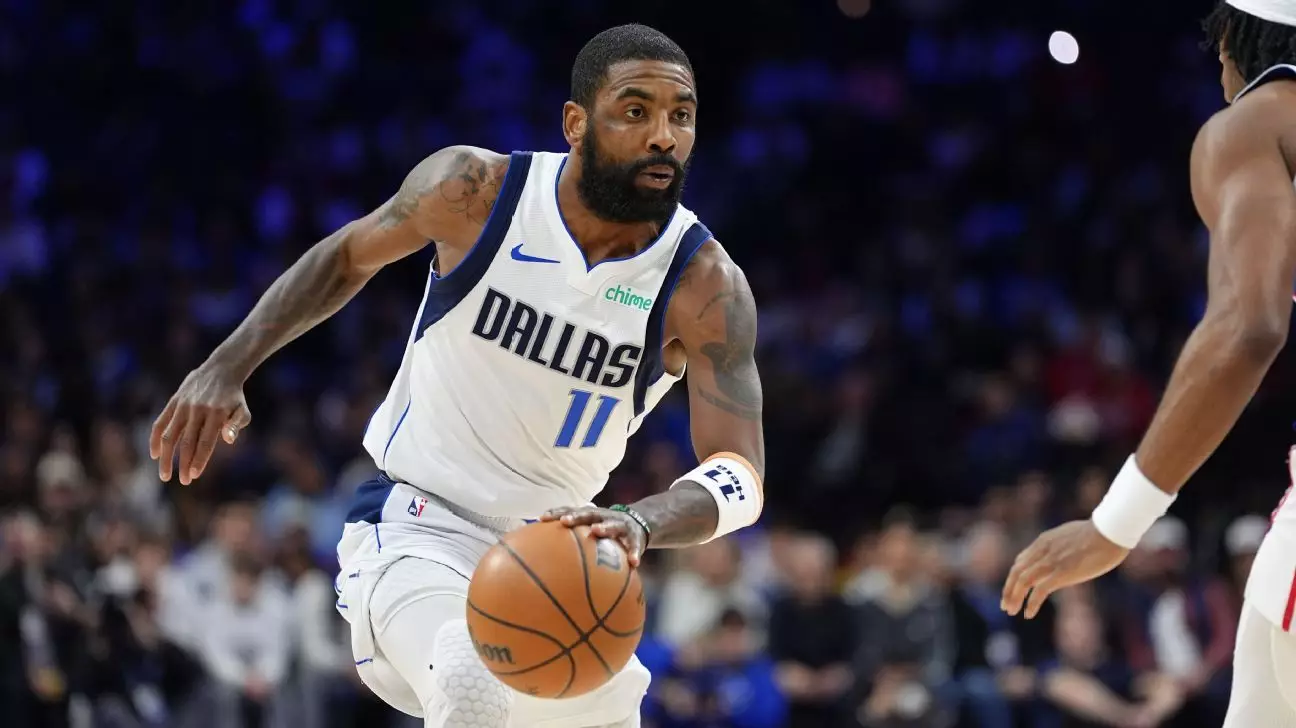Kyrie Irving, an elite point guard for the Dallas Mavericks, recently stirred conversations in the basketball community by expressing his desire to play for Team Australia at the 2028 Los Angeles Olympics. This revelation comes amidst his storied career that includes a gold medal with Team USA at the 2016 Rio Olympics. The shift from representing the United States to potentially donning the green and gold of Australia is a fascinating narrative, especially considering Irving’s roots in Melbourne, where he was born. The prospect of changing national allegiance raises questions about identity, patriotism, and the dynamics of international basketball.
Irving’s aspiration is not without its complexities. During the recent All-Star Weekend, he acknowledged that the journey to eligibility is fraught with bureaucratic hurdles. “There’s a lot of paperwork in between that,” he noted, highlighting the challenging landscape of international sports governance. To formally represent Australia, Irving must secure approval from multiple governing bodies, including USA Basketball, FIBA, and Basketball Australia. This process not only requires formal endorsements but also navigates the intricate relationships between national teams and the athletes who often have ties to multiple countries.
Irving’s history with Team USA adds another layer of depth to this potential transition. Despite contributing to a winning gold medal campaign in 2016, he was absent from the subsequent two Olympic rosters, including last year’s gold medal squad in Paris. This shift in representation could signal a desire for renewed purpose or a longing for connection with his Australian heritage, particularly as Team Australia continues to grow in prominence on the international stage. Having secured a bronze medal at the 2020 Tokyo Olympics, the Boomers are steadily evolving from underdogs to legitimate contenders, making Irving’s potential contribution all the more enticing.
The Impact on Team Australia
The inclusion of a player with Irving’s caliber would significantly enhance Team Australia’s chances on the world stage. Known for his incredible scoring ability, playmaking skills, and clutch performances, Irving could fill a vital role in a team that has shown promise but fell short in the last Olympics, finishing sixth after a heartbreaking overtime loss to Serbia. The prospect of adding a player of Irving’s experience and talent could provide a much-needed boost, transforming Australia into serious contenders for Olympic gold.
While the details of Kyrie Irving’s potential switch to Team Australia remain unclear, his expressed intent reflects a broader narrative about athlete identity in the global sports arena. The path to wearing the Aussie jersey is riddled with challenges, but it embodies an exciting opportunity for both Irving and the Australian team. Whether or not this transition occurs, it signifies a dynamic evolution in international basketball, where the passion for competition transcends geographic boundaries and national allegiance. The basketball world eagerly awaits the outcome of this captivating story as the 2028 Olympics approach.


Leave a Reply